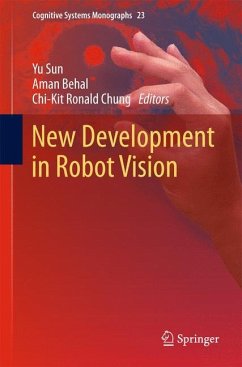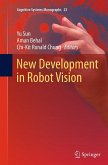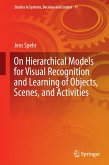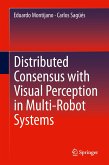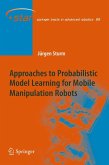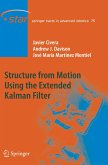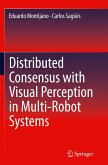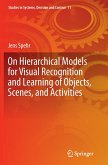The field of robotic vision has advanced dramatically recently with the development of new range sensors. Tremendous progress has been made resulting in significant impact on areas such as robotic navigation, scene/environment understanding, and visual learning. This edited book provides a solid and diversified reference source for some of the most recent important advancements in the field of robotic vision. The book starts with articles that describe new techniques to understand scenes from 2D/3D data such as estimation of planar structures, recognition of multiple objects in the scene using different kinds of features as well as their spatial and semantic relationships, generation of 3D object models, approach to recognize partially occluded objects, etc. Novel techniques are introduced to improve 3D perception accuracy with other sensors such as a gyroscope, positioning accuracy with a visual servoing based alignment strategy for microassembly, and increasing object recognition reliability using related manipulation motion models. For autonomous robot navigation, different vision-based localization and tracking strategies and algorithms are discussed. New approaches using probabilistic analysis for robot navigation, online learning of vision-based robot control, and 3D motion estimation via intensity differences from a monocular camera are described. This collection will be beneficial to graduate students, researchers, and professionals working in the area of robotic vision.
Bitte wählen Sie Ihr Anliegen aus.
Rechnungen
Retourenschein anfordern
Bestellstatus
Storno

